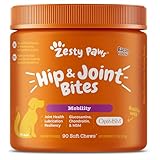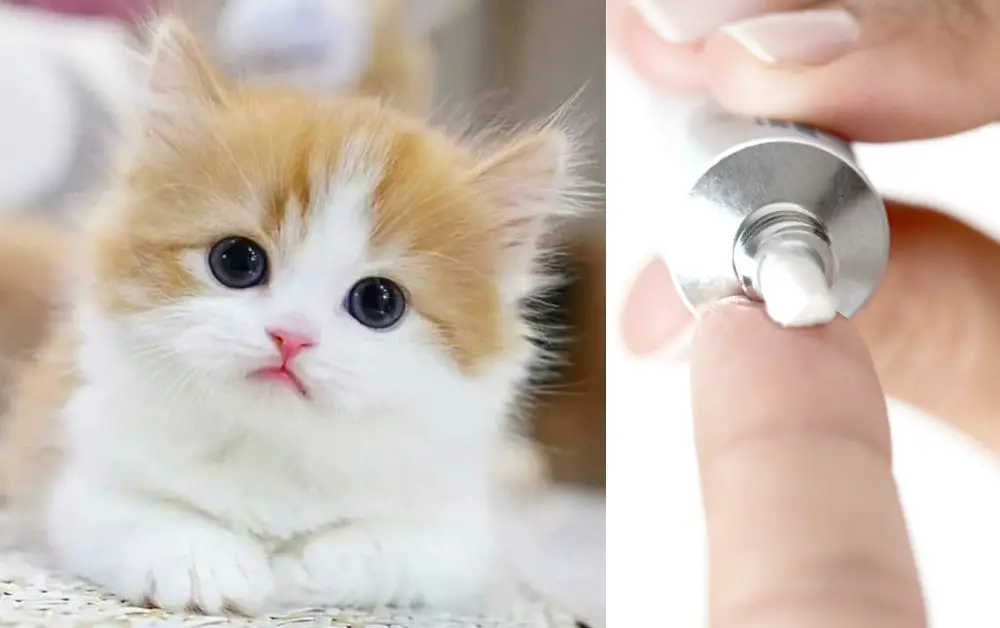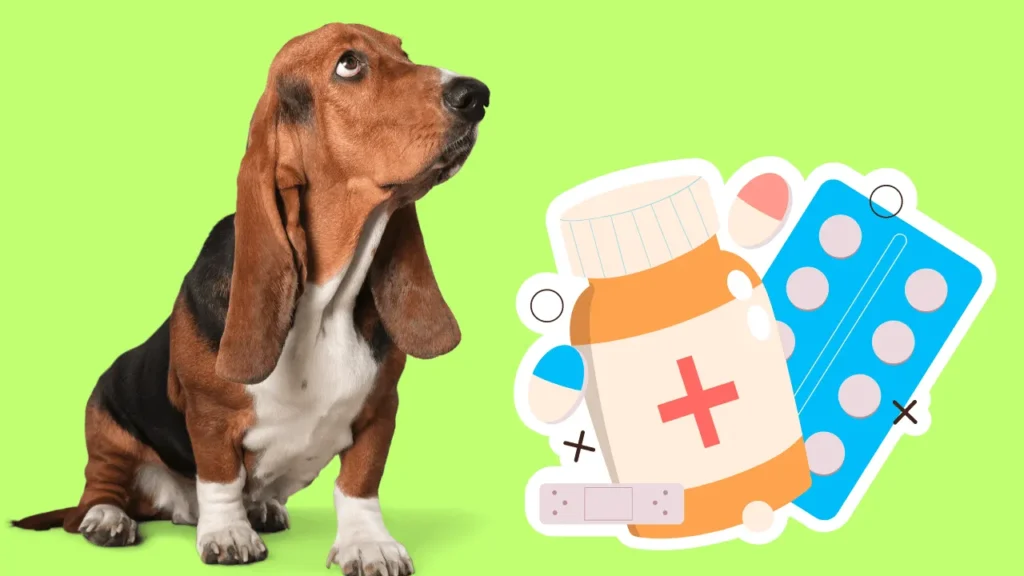When your beloved dog or cat develops a persistent cough, it can be distressing for both you and your furry companion. Dextromethorphan Guaifenesin for dogs and cats is a combination medication that veterinarians may recommend to help alleviate cough symptoms in pets.
This comprehensive guide will provide you with detailed information about proper dosage, safety considerations, and administration guidelines to ensure your pet receives the most effective and safe treatment possible.
Key Takeaways
- Dextromethorphan Guaifenesin combines a cough suppressant and expectorant to help relieve cough symptoms in dogs and cats.
- Proper dosage depends on your pet’s size: ½ tablet every 4 hours for small dogs and cats, 1 tablet every 4 hours for large dogs (for 100mg tablets).
- Veterinary guidance is essential before administering this medication to ensure it’s appropriate for your pet’s specific condition.
- Monitor your pet for any side effects and report concerns to your veterinarian promptly.
- This medication treats symptoms only—a proper diagnosis is necessary to address the underlying cause of the cough.
What is Dextromethorphan Guaifenesin?
Dextromethorphan Guaifenesin is a combination medication that contains two active ingredients:
- Dextromethorphan: A cough suppressant that works by affecting the signals in the brain that trigger the cough reflex.
- Guaifenesin: An expectorant that helps loosen mucus and phlegm, making it easier for your pet to clear their airways.
This combination is commonly used in human cough medications and has been adapted for veterinary use under professional guidance. The dual action of suppressing the cough reflex while helping to clear mucus makes it particularly useful for certain types of respiratory conditions in pets.
Guaifenesin Dosage For Dogs and Cats
The standard dosage of Dextromethorphan Guaifenesin 100 mg tablets for small dogs is ½ tablet, repeated every four hours. For cats, the dosage is also ½ tablet per cat, repeated every four hours. For large dogs, the dosage is 1 tablet per dog.
Guaifenesin Dosage Chart For Dogs & Cats by Weight
| Pet Type | Weight Range | Dosage | Frequency |
|---|---|---|---|
| Small Dogs | Under 20 lbs (9 kg) | ½ tablet | Every 4 hours |
| Medium Dogs | 20-50 lbs (9-23 kg) | ½-1 tablet | Every 4 hours |
| Large Dogs | Over 50 lbs (23 kg) | 1 tablet | Every 4 hours |
| Cats | All weights | ½ tablet | Every 4 hours |
Note: This chart is a general guideline. Always follow your veterinarian’s specific dosage instructions for your pet.
Important Dosage Considerations
- Start with the lowest effective dose: Begin with the minimum recommended dosage and only increase if necessary under veterinary guidance.
- Maximum daily limits: Do not exceed the maximum recommended daily dose, which is typically 4-6 administrations in a 24-hour period.
- Consistency in timing: Try to maintain consistent intervals between doses to maintain effective medication levels in your pet’s system.
- Duration of use: This medication is typically recommended for short-term use (usually no more than 7-10 days) unless otherwise directed by your veterinarian.
Uses of Dextromethorphan Guaifenesin in Dogs and Cats
Veterinarians may prescribe Dextromethorphan Guaifenesin for dogs and cats suffering from:
- Kennel cough (infectious tracheobronchitis)
- Bronchitis
- Minor respiratory infections
- Conditions characterized by dry, hacking coughs
It’s important to note that this medication is designed to treat symptoms, not the underlying cause of the cough. A proper veterinary diagnosis is essential to ensure appropriate treatment of the root condition.
Safety Considerations Before Administration
Before administering any medication to your pet, including Dextromethorphan Guaifenesin, consider these important safety factors:
- Veterinary consultation is essential: Always consult with your veterinarian before giving your pet any new medication.
- Not for all pets: This medication may not be suitable for pets with certain health conditions, including liver disease, heart conditions, or those taking specific medications.
- Avoid in certain situations: Do not give this medication to pets with productive coughs (where mucus is being expelled) as suppressing these coughs can be harmful.
- Pregnancy and nursing: The safety of this medication in pregnant or nursing pets has not been established.
How to Administer Dextromethorphan Guaifenesin to Your Pet
Administering medication to pets can be challenging. Here are some tips to make the process easier:
For Tablets
- Direct administration: Gently hold your pet’s mouth open and place the tablet at the back of the tongue. Close the mouth and stroke the throat to encourage swallowing.
- With food: Hide the tablet in a small amount of soft food, peanut butter (xylitol-free), or a pill pocket treat.
- Crushing option: Some tablets can be crushed and mixed with a small amount of palatable food. Check with your veterinarian first, as some medications should not be crushed.
For Liquid Formulations
If your veterinarian recommends a liquid formulation:
- Use a syringe or dropper for accurate measurement.
- Gently pull out the lower lip to create a pouch and deposit the liquid there.
- Hold the muzzle closed and stroke the throat to encourage swallowing.
Potential Side Effects to Watch For
While Dextromethorphan Guaifenesin is generally well-tolerated when used appropriately, some pets may experience side effects:
- Drowsiness or sedation
- Gastrointestinal upset (vomiting or diarrhea)
- Changes in appetite
- Allergic reactions (rare, but seek immediate veterinary care if you notice swelling, difficulty breathing, or hives)
If you observe any concerning side effects, contact your veterinarian immediately.
When to Consult Your Veterinarian
Contact your veterinarian if:
- Your pet’s cough persists for more than 7-10 days
- The cough worsens despite medication
- Your pet develops new symptoms
- Your pet experiences side effects from the medication
- Your pet has pre-existing health conditions that might be affected by this medication
FAQs
Is Dextromethorphan Guaifenesin safe for all dogs and cats?
No, Dextromethorphan Guaifenesin is not safe for all pets. Pets with certain health conditions like liver disease, heart problems, or those taking specific medications should not use this product. Always consult with your veterinarian before administering any medication to your pet.
Can I give my pet human cough medicine containing Dextromethorphan Guaifenesin?
You should never give your pet human medication without explicit veterinary guidance. While the active ingredients may be similar, human formulations often contain additional ingredients that can be harmful to pets, and the dosages are typically calibrated for humans, not animals.
How quickly will Dextromethorphan Guaifenesin work for my pet’s cough?
Most pets will show some improvement in cough symptoms within 1-2 hours of administration. However, the response time can vary depending on the severity of the condition and the individual pet’s metabolism.
Final Thoughts
Caring for a pet with a persistent cough can be worrying, but with the right information and veterinary guidance, you can help provide relief. Dextromethorphan Guaifenesin can be an effective part of a treatment plan when used appropriately and under professional supervision. Remember that while this guide provides comprehensive information, it’s not a substitute for professional veterinary advice tailored to your pet’s specific needs.
By following the proper dosage guidelines, monitoring for side effects, and maintaining open communication with your veterinarian, you can help ensure your furry companion receives the best possible care for their respiratory health.









